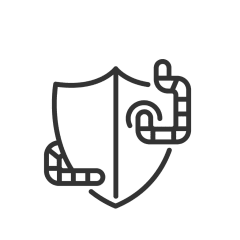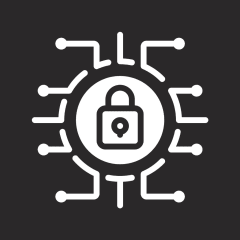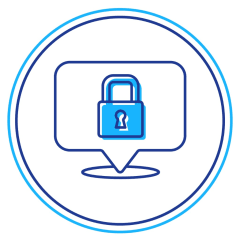While both copywriters and writers share a common foundation in writing skills, they serve distinct purposes and operate in different professional contexts. Here are the key differentiators between a copywriter and a writer:
Purpose and Audience:
- Copywriter: Focuses on creating persuasive and engaging content with a specific goal, often related to marketing or advertising. The primary aim is to drive action or response from a target audience, such as making a purchase or clicking on a link.
- Writer: Engages in storytelling, creative expression, or informative writing across a broad range of genres and styles. Writers may produce content for various purposes, including literature, journalism, blogging, or academic writing, and their primary goal is often to inform, entertain, or inspire.
Context:
- Copywriter: Typically works in a commercial or business context, often employed by advertising agencies, marketing firms, or in-house marketing departments. Creates content for promotional materials, advertisements, websites, and other marketing channels.
- Writer: Can work in diverse contexts, including publishing, journalism, academia, or as a freelancer. Writes for a broad spectrum of mediums, such as books, articles, essays, poems, or scripts.
Style and Tone:
- Copywriter: Adapts writing style to align with the brand voice and marketing objectives. Emphasizes clarity, persuasion, and a call to action. Often employs concise and impactful language to capture attention.
- Writer: Has the freedom to explore a variety of styles and tones, depending on the genre and purpose of the writing. May prioritize creativity, literary techniques, and a distinctive voice tailored to the chosen form of expression.
Creativity vs. Information:
- Copywriter: Creativity is essential for crafting compelling and memorable messages that resonate with the target audience. Focuses on creating content that not only informs but also motivates the audience to take a specific action.
- Writer: Creativity is central to the writing process, but the emphasis may vary based on the genre or objective. Writers often explore complex themes, character development, or the conveyance of ideas and information.
Outcome:
- Copywriter: The success of a copywriter is often measured by the effectiveness of the content in achieving the desired marketing or advertising goals, such as increased sales, brand awareness, or customer engagement.
- Writer: Success for a writer is more diverse and can be measured through critical acclaim, publication, reader engagement, or personal satisfaction. The goals may vary depending on the writer's objectives, whether it's completing a novel, contributing to a magazine, or sharing thoughts on a personal blog.
In summary, while both copywriters and writers are skilled communicators, their distinct roles, contexts, and objectives shape their approach to writing. Copywriters focus on influencing actions in a commercial context, while writers explore a broader spectrum of creative expression and informational content across various genres and industries.
Related Careers

Incident Responder
An incident responder is a cyber security professional responsible for identifying, investigating, and mitigating security incidents within an organization.

Cryptanalyst
A cryptanalyst is a specialist in the field of cryptography who focuses on analyzing cryptographic systems and breaking codes to decipher encrypted information.

CISO
A Chief Information Security Officer (CISO) is a senior executive responsible for managing and overseeing an organization's information security program.

Security Software Developer
A security software developer is responsible for designing and developing software applications with a strong focus on security.

Cryptographer
A cryptographer specializes in the field of cryptography, which involves the study and practice of secure communication and data protection.

Security Architect
A security architect is a cybersecurity professional responsible for designing and implementing secure systems, networks, and applications to protect an organization's digital assets from cyber threats and attacks.

Penetration Tester
A penetration tester evaluates the security of computer systems, networks, and applications by simulating real-world attacks.

Information Security Director
An information security director is responsible for leading and overseeing the information security function within an organization.

Digital Forensics Analyst
Digital forensics analysts investigate and analyze digital evidence to uncover information related to cybercrime, data breaches, or other digital incidents.

Red Teamer
A red teamer specializes in conducting adversarial simulations and assessments of an organization's security measures, with the goal of identifying vulnerabilities and weaknesses.

Blue Teamer
Blue teamers are cybersecurity professionals who specialize in defensive security measures and strategies.

SOC Manager
A Security Operations Center (SOC) manager is responsible for overseeing the day-to-day operations and strategic direction of a SOC.

Security Engineer
A security engineer is responsible for safeguarding an organization's information technology infrastructure and data from potential threats, vulnerabilities, and cyberattacks.

Ethical Hacker
An ethical hacker is a cybersecurity professional who is hired by an organization to identify and fix vulnerabilities in their computer systems, networks, and applications.

Information Security Analyst
An information security analyst is responsible for safeguarding an organization's computer systems and networks against cyber threats and unauthorized access.

Cybercrime Investigator
A cybercrime investigator is responsible for investigating and combating cybercrimes.

Information Security Manager
An information security manager is responsible for overseeing and managing the information security program within an organization.

IT Security Consultant
An IT security consultant provides expert advice and guidance on information technology security matters to organizations.

